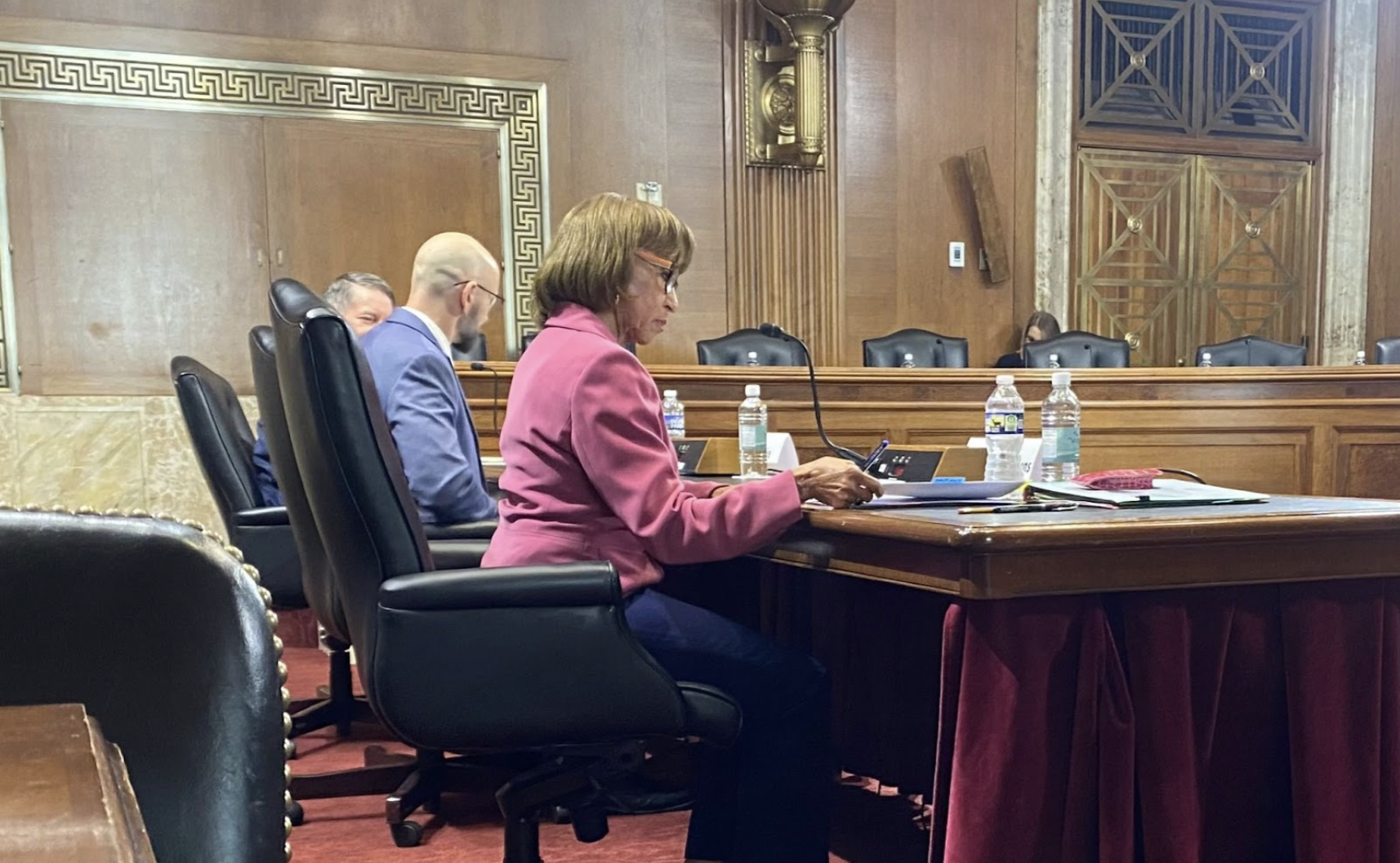
Esther Frances/Medill News Service

Esther Frances/Medill News Service
By Esther Frances
Abandoned coal mines threaten community safety and the environment, but despite bipartisan support, remediation efforts are often stalled by litigation and red tape, senators said at a hearing on Nov. 9.
States must undergo prolonged vetting processes before they can turn previously mined lands into wildlife habitats, commercial areas or other reclamation projects, Chairman Sen. Joe Manchin, D-W. Va. said at the Energy and Natural Resources Committee Hearing in Washington, D.C.
“These coal communities sacrifice everything to power our nation to greatness and should be able to implement projects that will have positive impacts on the community in a timely manner,” Manchin said. “They sure as hell don’t deserve to be strung along by the federal government, tied up in bureaucratic red tape, and forced to wait to put transformative projects into action. It’s absolutely unacceptable.”
Acid water saturated with metals and long standing fires beneath the earth threaten entire communities located near abandoned coal mine sites. Communities that complain the most about damage from former coal mines are prioritized for restoration projects, according to Rob Rice, director of the Division of Land Restoration at the West Virginia Department of Environmental Protection.
States get new instructions every year on how congressional funding should be used in a restoration project.
“And each year, that guidance document becomes thicker, so there’s more hoops to jump through,” Rice said. “The vetting period has increased over subsequent years.”
Glenda Owens, deputy director of the Office of Surface Mining Reclamation and Enforcement at the U.S. Department of the Interior, blamed the lengthy processes on court disputes over approval of coal mine restoration projects.
“We want to make sure that the decisions we make during these environmental reviews will sustain judicial scrutiny,” Owens said. “If we don’t adhere to the controlling court decisions, we’re going to risk getting those decisions vacated or having to start all over, which is just going to require additional time.”
This discussion followed a hearing last week that addressed a similarly slow approval process for carbon capture and storage wells, despite both issues receiving bipartisan support and congressional funding.
“It’s just very frustrating that things aren’t going out the door. I want to make sure that the government is not impeding this and putting more oversight to the point where their intention is not to let it happen,” Manchin said. “That’s what’s scaring me, because everything we’re doing, we’re trying to show that we can produce the fossil [fuel] that’s needed for energy security, better and cleaner with more innovation [and] technology than any other place in the world, but we can’t if the government’s fighting you.”